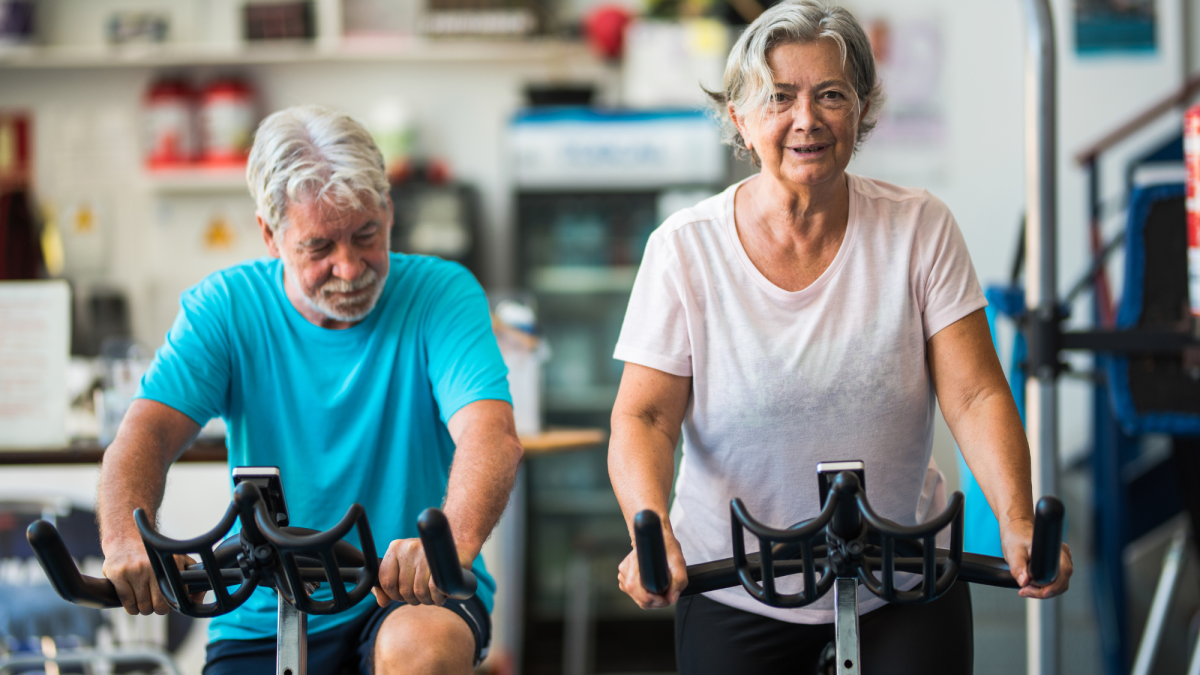$4.5M grant to explore link between exercise, slowing down Alzheimer’s

A $4.5 million groundbreaking grant from the National Institute on Aging will fund research exploring a promising link between aerobic exercise and slowing the progression of Alzheimer's. Photo courtesy Shutterstock
A $4.5 million groundbreaking grant will fund research to explore a promising link between aerobic exercise and slowing the progression of Alzheimer's disease in a study led by an Arizona State University researcher.
An estimated 6.7 million Americans age 65 and older are living with Alzheimer's disease, according to the Alzheimer’s Association's 2023 report.
“Alzheimer’s is a complex disease with many factors contributing to it, which is part of the reason we haven’t found a single cure. Recently though, we’ve found that modifying lifestyle factors may contribute to slowing the progression of the disease,” said Professor Fang Yu, Edson Chair in Dementia Translational Nursing Science at the Edson College of Nursing and Health Innovation.
The grant comes from the National Institute on Aging, a division of the National Institutes of Health. Yu and her team will conduct the first-ever sequential, multiple assignment, randomized trial, or SMART, for Alzheimer’s disease.
“I think this grant shows what Professor Yu and her team are doing is really cutting edge. This research could impact millions of people, potentially giving them some hope of relief from a terrible disease that steals their very essence. I’m looking forward to the findings and seeing how they develop into real-world interventions,” said Edson College Dean Judith Karshmer.
This area of research builds on Yu’s previous work, which found that a six-month exercise program significantly reduced cognitive decline in comparison to the natural course of changes for Alzheimer’s dementia. Specifically, aerobic exercise is effective in reducing white matter hyperintensities progression, which is associated with cognitive decline and the development of dementia.
The new Phase 2 clinical trial will examine the best exercises to improve aerobic fitness in older adults with early Alzheimer’s disease and examine how those exercises impact their memory.
“The most exciting part of this is trying to reduce the variations in responses to exercise among participants. To this point, we’ve seen some people improve, while some decline. So, what we’re trying to do is to reduce the variability to help people respond positively in some way so we can truly understand if exercise has an impact and for who,” Yu said.
The team is planning to recruit more than 100 participants in Arizona to enroll in the study. They’re looking for people who are 65 and older, who have noticed changes in their memory and have someone who knows them to serve as their study partner.
To learn more about the study and eligibility, email braintraining@asu.edu or call 602-496-2292.
More Health and medicine

Innovative, fast-moving ventures emerge from Mayo Clinic and ASU summer residency program
By Georgann YaraIn a batting cage transformed into a custom pitching lab, tricked out with the latest in sports technology,…
Is ‘U-shaped happiness’ universal?
A theory that’s been around for more than a decade describes a person’s subjective well-being — or “happiness” — as having a U-…
College of Health Solutions medical nutrition student aims to give back to her Navajo community
As Miss Navajo Nation, Amy N. Begaye worked to improve lives in her community by raising awareness about STEM education and…